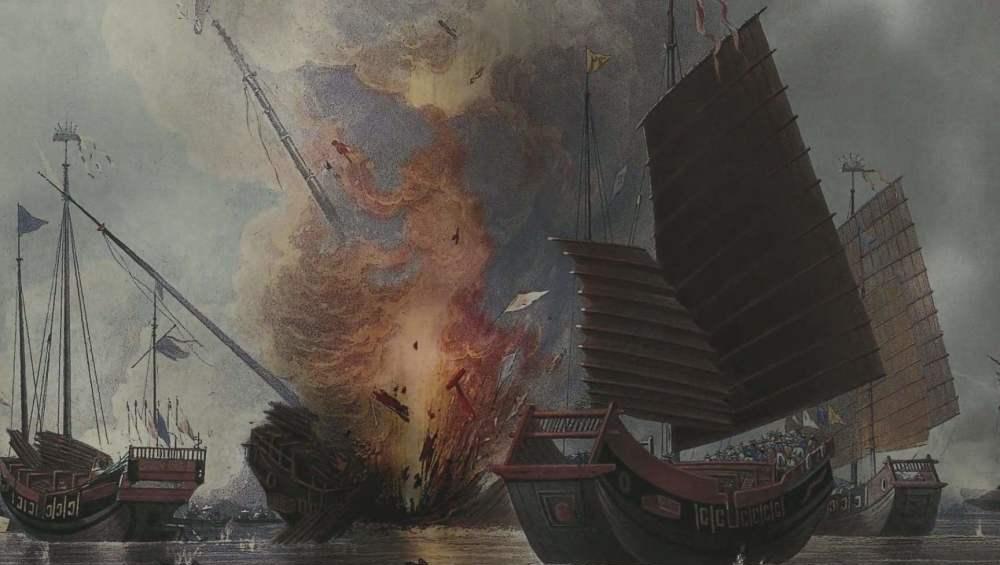
The Opium War was an unjust war launched by Britain to invade China. The cause of the war began with Sino-British trade, and since the Qianlong Dynasty implemented the "closed country" policy, China's industrial development has been in a state of stagnation, but the agricultural economy has not weakened. On the contrary, it has been in a surplus position in the trade between China and Britain, and in order to reverse this surplus situation, the British secretly smuggled opium to China.
In 1838, the Daoguang Emperor sent the Minister of Chincha, Lin Zexu, to Guangdong to ban opium, so there was a tiger gate behind to sell cigarettes, and the British used this as an excuse to launch what they called the "war of commerce" to open the door of China. An expeditionary force of 47 warships and 4,000 men was dispatched to invade China.
After two years of war, the Manchu Qing government invested nearly 200,000 troops, and finally the result of the war with 523 British casualties and 22,790 Qing casualties was declared defeated, and the Qing government was forced to sign the Treaty of Nanking with the British, which was the first unequal treaty signed by modern China, and it was also the beginning of China's beginning to degenerate into a semi-colonial and semi-feudal society.
The main provisions of the treaty are:
(a) Cede Hong Kong Island;
2. Open Guangzhou, Xiamen, Fuzhou, Ningbo and Shanghai as treaty ports, and allow British people to set up consulates at treaty ports;
(c) to pay 21 million silver dollars to England in war reparations;
(4) The taxation of British import and export goods in China shall be jointly agreed upon between China and the United Kingdom;
(5) British merchants may freely trade with Chinese merchants without being restricted by "public conduct";
6. Enjoy consular jurisdiction, and British people may not be punished by Chinese law for committing crimes in China.